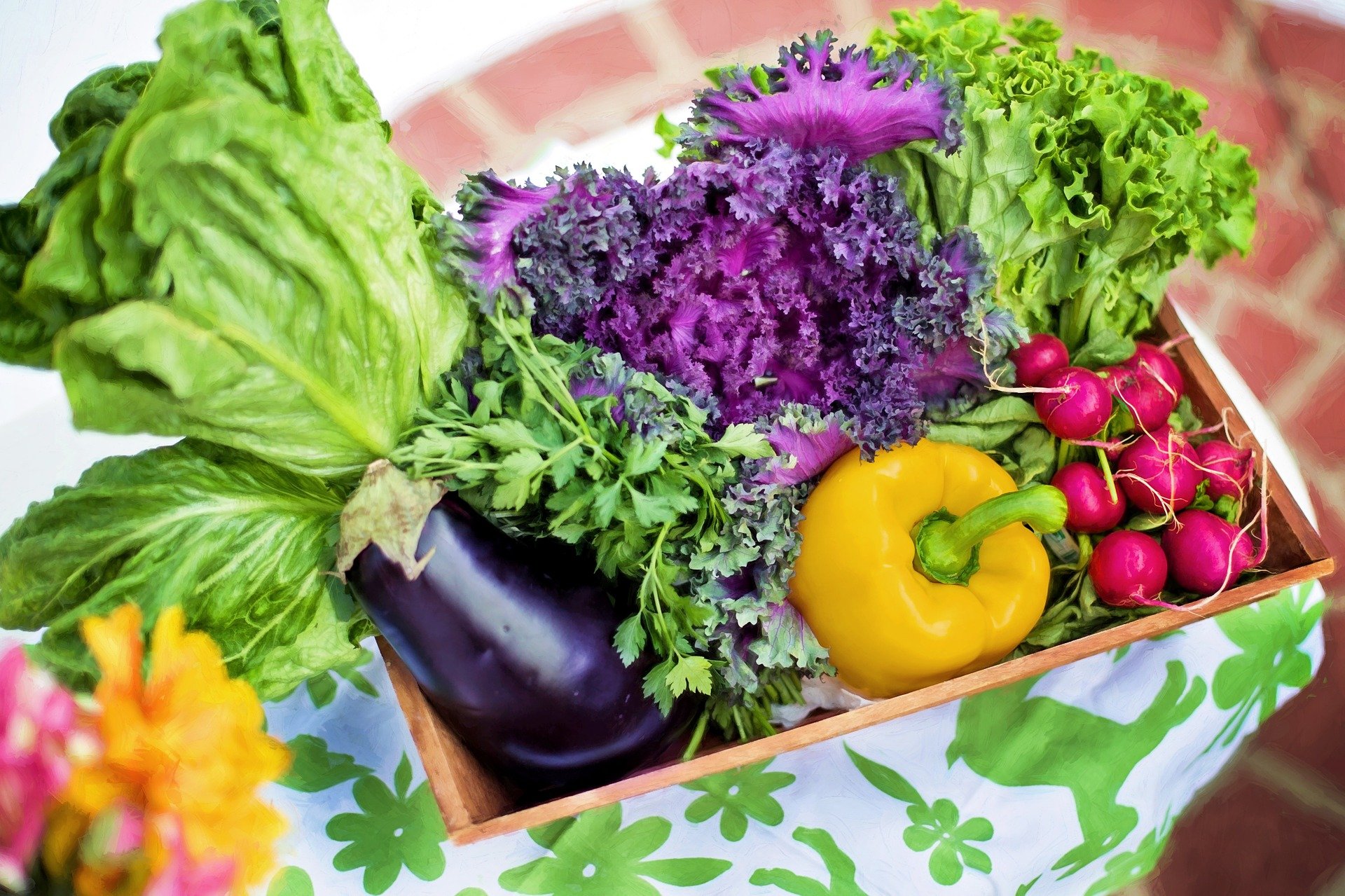Have you ever wondered why so many people are switching to a plant-based diet? Maybe you’re not sure what it really means. Is it another term for vegetarianism or veganism?
Maybe you think you know what it means and have given it some thought, but quickly changed your mind because you could not imagine giving up meat!
There are many benefits to eating a plant-based diet, and the first one is that you still eat meat. Did I hear you let out a sigh of relief? I let out a huge sigh when I learned that meat was still on the plate! This is a significant benefit, and the benefits do not end there!
Are you familiar with the word meatatarian? This is the person we often tease when they have just phoned in an order for a “Meat Lovers” pizza with extra meat. But believe it or not, it is actually a real word!
The Urban Dictionary defines it as a “person who eats meat virtually to the exclusion of vegetables. The meatatarian often claims to be conserving veggies for those who would actually eat them. It keeps the veggies out of the waste stream, helping the environment, or keeping produce costs down”.
I call out to all meatatarians and every other person who eats more meat than other food groups. I will share a variety of reasons why a plant-based diet may be right for your health, beliefs, and environment!
What Does a “Plant-Based Diet” mean?
A Plant-based or plant-forward eating diet or eating pattern focuses on foods primarily from plants. This includes fruits and vegetables and nuts, seeds, oils, whole grains, legumes, and beans. It does not mean that you are vegetarian or vegan and never eat meat or dairy. It merely means that you are choosing more of your foods from plant sources.
Some examples of a plant-based diet are the Mediterranean diet and the Nordic diet. A vegetarian, pescatarian, flexitarian, or vegan diet is also another example of a plant-based diet.
For the purpose of this article, let’s focus on plant-based diets that include sources of meat.
The Big Benefits of a Plant-based Diet
There is a great deal of compelling evidence to substantiate why we should try a plant-based diet.
Let’s take a look at 6 benefits from a plant-based diet. If you are serious about trying it, your plant-based foods should be 70% of your daily food intake.
Boost the Nutrient Density of Your Diet
Nutrient-dense foods are foods that are high in nutrients, but low in calories. Many plant-based foods naturally fall into this category. When you eat more nutrient-dense and minimally processed foods, you’re getting more phytonutrients, fiber, vitamins, healthy carbs, minerals, and healthy fats.
This is especially important as we age, since our bodies don’t absorb nutrients as well as we once did. We also tend to need fewer calories, and thus, eat less. When you’re adding more nutrient-dense plant-based foods to your diet, you are eating for optimum health.
Disease Prevention
An estimated 70 percent of all diseases, including one-third of all cancers, high blood pressure, diabetes, obesity, and coronary artery disease, are related to diet. If you wonder what cancers are most affected, it is the most common six – colon, breast, prostate, stomach, lung, and esophageal cancers.
Because a plant-based diet is low in fat, it can help prevent, treat, and even reverse heart disease. It is an effective way to slow down existing coronary artery disease. This is a powerful statement because cardiovascular disease kills one million Americans a year. It is the leading cause of death in the United States.
Let’s chew on this information for a minute. Eating a healthy diet without making many sacrifices can potentially prevent life’s biggest killers.
Prevention of Weight Gain and Other Menopause Symptoms
If you are like me, my menopausal years have made it easier for me to put on some weight. I especially hate that it seems to accumulate around my middle. The only place that I want to get a muffin top from is the bakery!
Statistics from the Centers for Disease Control and Prevention indicate that 64 percent of adults and 15 percent of children aged 6 to 19 are overweight. This dramatically increases their risk of weight-related diseases such as diabetes, stroke, and heart disease.
The plant-based diet lowers our intake of saturated fats, complex carbs, and processed foods. By switching to this type of eating, you will lose excess weight and keep it off without counting calories.
Because you can still eat high protein and nutrient-dense foods, you are less likely to feel hungry. Would you agree that this is an added bonus?
This is an excellent time to talk about phytoestrogens. Certain plant-based foods are full of naturally occurring phytoestrogens. “Phyto” is the Greek root word for “plant.” Estrogen is the female hormone that regulates many functions in both men and women.
As you likely know, the female body produces decreasing amounts of estrogen as we age. When we eat foods that contain phytoestrogens, our body may respond as if we still make our own adequate amount of estrogen.
Here are some of the benefits we gain from eating foods containing phytoestrogens:
- Fewer hot flashes
- Stronger bones, improved bone density
- Lower risk of osteoporosis
Some foods high in phytoestrogens are broccoli, apples, dried fruits, oranges, tofu, carrots, flaxseeds, sesame seeds, garlic, peaches, strawberries, blueberries, and raspberries.
More research is needed to fully understand what phytoestrogens do. But so far, a diet rich in plant foods poses only health benefits. There are no known health risks from eating more plant foods.
Decreased Risk of Eating Toxic Chemicals
Processed foods contain any number of additives designed to add color, enhance flavor, increase shelf life and make food more palatable to the consumer. These substances can be applied at any or all parts of the production, processing, treatment, packaging, transportation or storage of food. The names of these additives are what make the ingredient label on your packaged foods long, and sometime indecipherable.
If you make fresh vegetables and fruit two-thirds of your diet, you’ll not have to worry about reading the ingredient label – because there isn’t one. You’ll also avoid and perhaps decrease the amount of these toxic chemicals in your body.
You Will Live Longer
If you switch from a fatty, processed American diet to a plant-based diet, you can add several healthy years to your life. Dr. Michael F. Roizen, author of ‘The Real Age Diet: Make Yourself Younger With What You Eat’ says, “People who consume saturated four-legged fat have a shorter life span and more disability at the end of their lives.”
He means that animal fat clogs your arteries and prevents an adequate flow of oxygen-rich blood through your body. This depletes your energy. If you find yourself hitting the snooze button too often, try increasing your veggie and legume consumption while decreasing your meat-eating.
Major meat eaters also suffer from more cognitive and sexual dysfunction at a younger age than those who eat a plant-based diet. Let’s face it; nothing good can come from that!
Increased Fiber and a Healthier Bowel
Meat does not contain fiber. Eating more vegetables and legumes will increase your fiber intake.
A high fiber diet provides you with healthier bowel habits. Your stool will look healthier, and you will have fewer episodes of constipation. You are also less likely to get hemorrhoids or diverticulitis.
Fiber is also filling. Eating a high-fiber meal can help keep you feeling full.
There are many more benefits to eating a plant-based diet. But you can see from just these six benefits that you will be healthier.
How to Get Started
Are you starting to think that this is worth a try? Well, here are some simple ways to get started.
- Have a whole-grain breakfast with nuts and fresh fruit. Oatmeal and buckwheat are excellent options. How about rolled oats with walnuts, banana, and some cinnamon sprinkled on top?
- Put the vegetables on your plate first. Fill half of your plate with them at lunch and dinner. Include vegetables of various colors.
- Enjoy some hummus with vegetables for your snack. I like to wash and cut my vegetables the moment that I bring them home from the store. I store them in clear containers. When they are already prepared like this, I am more likely to grab them when I am hungry.
- Make a healthy breakfast burrito. A whole grain tortilla with scrambled eggs, black beans, veggies, cheese, and some salsa is an protein packed meal.
- Swap a meat lovers pizza with a homemade veggie pizza. Top it with mozzarella cheese, tomatoes, broccoli, onions, peppers, and mushrooms. If you still desire meat, add a bit of lean chicken or ground beef.
- Cook less meat. Consider it a side serving instead of the main event.
- Choose healthy fats. Olive oil, olives, nuts, nut butters, seed, and avocados are great examples of healthy fats.
- Try cooking a vegetarian meal once a week. A stir fry meal with loads of veggies, vegetarian chili, or a hearty lentil and spinach soup can be delicious. There is an excellent recipe for the lentil and spinach meal at the end of this article.
- Choose ripe delicious fruit for dessert. Peaches, crispy apples, and berries can be that perfect sweet treat.
A List of High Protein Meat-Free Foods
Here are some of the top meat-free proteins to help you stock your fridge and pantry as you start your plant-based diet.
- Cooked lentils contain 8.84 g of protein per ½ cup.
- Cooked chickpeas contain about 7.25 g of protein per ½ cup.
- Peanuts have about 20 g of protein per ½ cup.
- A tablespoon of natural peanut butter contains about 8 g of protein.
- Quinoa contains about 8 g of protein per cup. Add it to soup or salad.
- Almonds pack a whopping 16 g of protein per ½ cup.
- A large baked potato has about 8 g of protein.
- A medium stock of broccoli has about 4 g of protein.
If you would like to know how much protein you need per day, please read my article “Your Daily Protein: What You Need and Why” It also includes a link to a substantial protein-rich food list.
Final Thoughts
There are so many options out there when it comes to healthy eating. It can even get a bit overwhelming at times. But the beauty of a plant-based diet is that it is not asking you to stop eating something.
A plant-based diet is all about re-thinking the way you look at meat. You do not need to eliminate it, but you do need to eat less of it. For most of us, this is not such a difficult task.
For all you meatatarians, you just need to take it one step at a time. Eat less meat. Just focus on that.
Over time, eating a plant-based diet will become easy – like second nature. Think of the six benefits that will improve your health, weight, and energy. You are going to look and feel better. Now, who doesn’t want that?!
I would love to hear how you are doing with your first week on a plant-based diet. Let me know what vegetables you prefer. If you enjoyed this article, please share it with a friend or loved one. Thanks!
P.S. Here is the link to the lentils, spinach, and ginger recipe. Enjoy!

